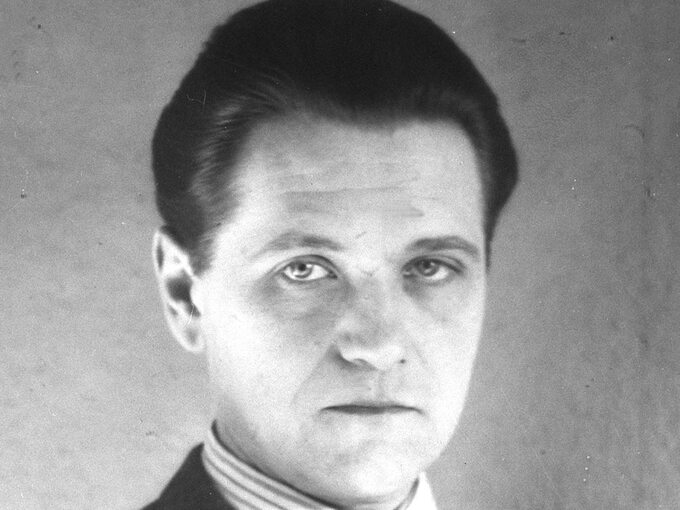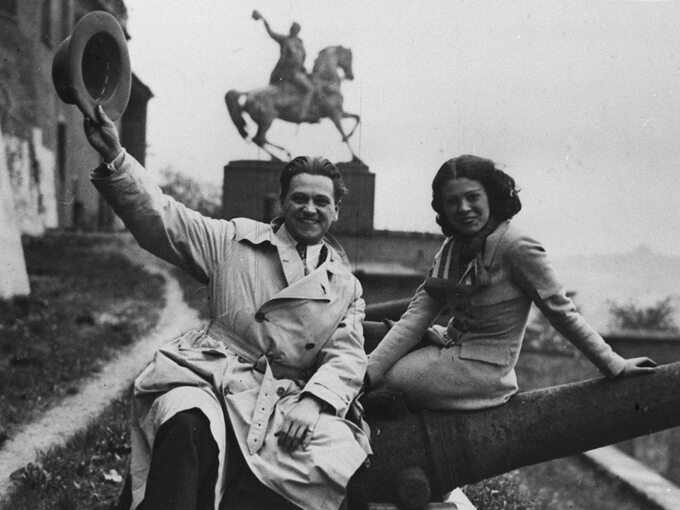Eugeniusz Bodo is one of the most recognizable artists of the interwar period and one of the stage symbols of those years. Charismatic, multi-talented. He died during the Second World War, most likely by the Soviets, although it is not yet known under what circumstances.
Polish, Swiss
Eugeniusz Bodeau was born on December 28, 1899 in Geneva as Bohdan Eugen Junod. His father was a Swiss, Théodore Junod, and his mother was Jadwiga Anna Dorota Dilewska, who was from Poland of Mazovian nobility. Eugenius accepted his father's religion, that is, he was an evangelist. He also retained his Swiss citizenship for the rest of his life. The name “Bodo” is actually a pseudonym that Eugenius adopted later.
Eugene Bodo's father was passionate about silent cinema. He and his wife went on a long journey. He even held film screenings on the Russian-Chinese and Russian-Persian borders. In 1903, the Junod family moved to the lodge. Here, Eugene's father managed the “Cabinet of Illusions”, and later the “Urania” Theater of Illusions. It was located at the corner of Piotrkowska and Yaratsa streets. It was a place that many artists looked forward to visiting. He remembered them with feelings among others. Julian Toovim. At that time Mrs. Junod opened her own restaurant in Lodz called “Masque”.

Evgenyush Bodo made his debut on the stage of his father's theater at the age of 10. However, it began to appear regularly only seven years later. She appeared as a dancer and singer on the revue stages of Poznań, Lublin and Warsaw. In 1925, he starred in his first film (“The Rivals”), which brought him great fame throughout Poland. Bodo was versatile. He performed, sang and played instruments. He excelled in both tragic and comedic roles.
On May 27, 1929, a tragedy happened with his participation. The Chevrolet car he was driving went off the road on the Warsaw-Poznan route. Actor Witold Roland, who was traveling from Bodo, died on the spot. Then Yevgeniush Bodo was sentenced to 6-month probation.
Eugenius was very close to his mother throughout his life. He looked after her and when he bought an apartment in Warsaw, he brought her to live there. He never married, although he was very successful. He met, among others, the actress Nora Neys (Sonia Najman) or Anne Chevalier from Tahiti, named Rary. Although he loved Rary deeply, the marriage did not take place, apparently due to the woman's alcohol abuse (Bodo was a teetotaler). Eugene Bodo's famous companion was his dog – a strong Great Dane named Sambo.
In the 1930s, Eugeniusz Bodo began writing screenplays and directing films in which he acted. He created the film studio “BW B”. and “Urania-Film”. In 1939, he began to collaborate with American cinematographers, which was interrupted by the outbreak of World War II.
Second World War
In April 1939, he opened in Warsaw, ul. Foksal 17, cafe-bodo cafe and bought a four-room apartment on the first floor of a residential building. After the start of the war, Yevgenyush Bodo went to Lviv, where he performed in the Tea-Jazz Theater of Henrik Wars. He knew Russian well, that's why he also appeared in the Soviet Union. However, at some point he decided to emigrate to the United States. When he presented the relevant documents allowing him to leave, he revealed that he had Swiss citizenship (previously this was not widely known).

Recognition of Swiss citizenship may have led to his death. Bodo was not allowed to leave, and on June 26, 1941, he was arrested by the NKVD and taken to Moscow, where he was locked up in prison. The Soviets considered him a spy and interrogated him many times. On October 30, 1942, Yevgenyush Bodo was sentenced to 5 years in a hard educational camp. Half a year later, he was transferred to a labor camp, where he was unfit for work due to fatigue. Eugene Bodo died on October 7, 1943. He was buried in a mass grave.
Although this version of death is highly probable, there are opinions that Bodo was shot by the Germans while still in Lviv and may have been buried in an unmarked grave at the Lichakov cemetery.
Filmography of Eugene Bodo
- 1925: Rivals
- 1926: The Red Jester
- 1927: The Smile of Fortune
- 1929: The Man with a Blue Soul
- 1929: Policeman Tageev
- 1930: The Cult of the Body
- 1930: In Siberia
- 1930: A dangerous affair
- 1930: The Beauty of Life
- 1930: Wind from the Sea
- 1932: Nameless Heroes
- 1932: The Voice of the Desert
- 1933: His Excellency the Salesman
- 1933: Toy
- February 1934: Pieśniarz Warszawy
- March 1934: Loves, likes, respects
- September 1934: Is Lucina a Girl?
- December 1934: The Black Pearl
- 1935: Mr. Driver
- 1936: American Adventure
- 1936: Heroes of Siberia
- 1937: Prince
- 1937: One Floor Up
- 1937: I lied
- 1938: Pavel and Havel
- 1938: Robert and Bertrand
- 1938: Strach as Zygmunt Modek
- 1938: For sins committed
- 1939: Spy Beware (unfinished film)
Also read:
“Forbidden Songs”. The legendary film initially caused great dissatisfactionAlso read:
Pola Negri. The biggest Polish silent film starAlso read:
Zbigniew Cybulski. The interrupted career of an unforgettable actor
(tags translated) Eugenius Bodo
